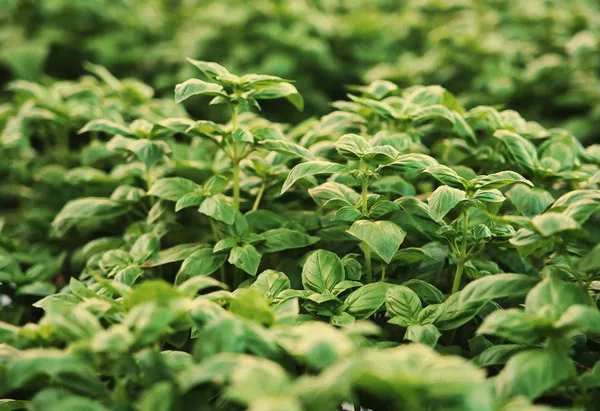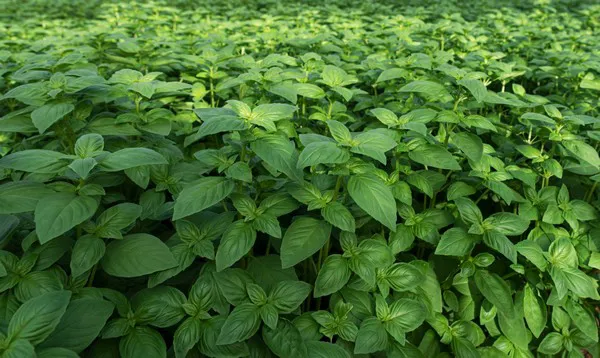Javier Mosquera launched his basil cultivation project on the island of Tenerife with OPFH Montaña Roja almost a decade ago. “Unlike other origins in Europe, in the Canary Islands we produce basil 52 weeks a year thanks to the advantage of our climate,” Javier stated. “That's why our strongest point is in winter. In summer we continue to market Canarian basil to our customers, who value the strong commitment we have with them, even though production in Europe and in other origins that offer it at cheaper prices increases in summer.”

“Competition in the basil market mainly comes from Israel and Kenya,” Javier stated. “However, our advantage in the market is that we are of European origin and customers are even willing to pay a little more for European products. In addition, everyone knows that a mildew attack or a cold snap in the area of Israel could cause the entire European basil market to suffer, so many customers want to have a safe origin, such as the Canary Islands.”
“Even during the January cold snap, we continued to have production,” Javier added. “The crops slowed down because the temperatures dropped to 12 degrees (and basil needs 20 degrees up) so the harvest decreased, but it helped us a lot to have good weekly planning. Now, between the months of January and March, in winter, the Canary Islands is one of the few origins in Europe with production. This is our strongest period in which we can continue to grow and open new lines. ”
Many customers in Europe already trust the basil produced in the Canary Islands; one of the most interesting fresh herbs both for its high consumption and profitability. “It all depends on the buyer country and the format in which it is marketed; for example, France asks for bundles of 30 grams and England buys more in bulk; but the price usually stands between 7 and 9 euro per kilo.”

“We expect to have considerable growth next year with the 50 new hectares of Gran Canaria”
The Montaña Roja project was born in 2014 when Javier opted for this product and launched the cultivation in an 8,000-square-meter greenhouse. “That year was, in general, bad for the other basil-producing origins. Despite having just started, we received many orders so we began to cultivate new farms to increase production and grow until COVID arrived.”
“All our exports are made by plane, so when the borders were closed to tourists and flights to the islands stopped due to the pandemic, we were unable to send our basil to our customers in Europe, where the restaurant and catering sector had also been closed. It was a real disaster,” Javier stated. “Fortunately, we have managed to recover since then.”
“We currently export our basil to Switzerland, Germany, France, and Portugal, and, of course, we make shipments to the peninsula; we also make sporadic shipments to England and the Netherlands. We have expanded our area to have farms in different parts of the islands of Gran Canaria and Tenerife, each with different microclimates. Basil is a complicated crop and this allows us to assure our customers that we'll have a constant supply. In total, we have 70 hectares that we combine with watermelon and melon. 40 of them were planted relatively recently in Gran Canaria, so next year we expect to have considerable growth in our production," Javier stated.
For more information:
Montaña Roja Herbs SAT
C/ La Constitución, 53 (Junto Coop. Ntra. Señora de Abona)
Arico Viejo 38589, Arico Tenerife (España)
Tel. +34 629 225 723
[email protected]
https://montana-roja.com









